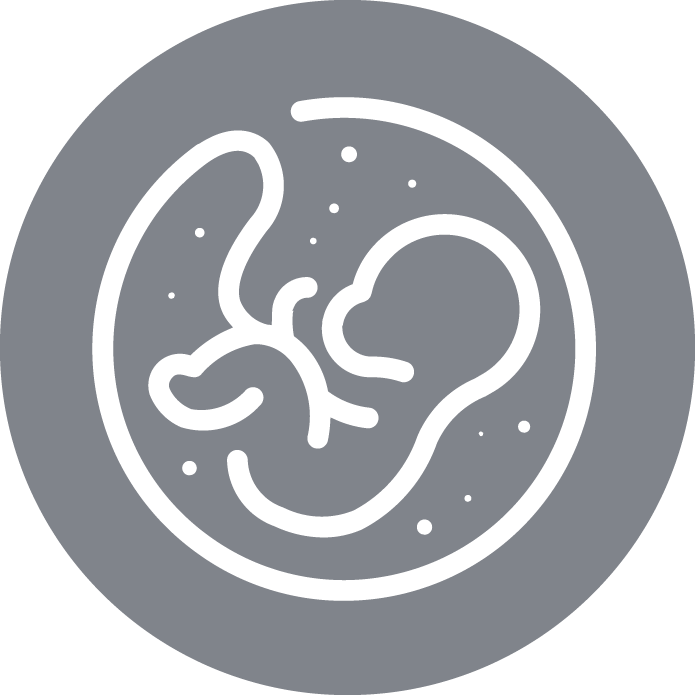Biotechnology and Artificial Intelligence in Reproductive Medicine: Innovation and Future
Biotechnology has marked a turning point in reproductive medicine, offering advanced solutions for infertility diagnosis, treatment, and management. This field, now enriched by Artificial Intelligence (AI), genome sequencing, and multi-omics analyses, promises to transform the future of fertility preservation, increasing treatment effectiveness and optimising patient experiences.
In our interview with Dr. Antonio Capalbo, Chief Scientific Officer of Juno Genetics, we discuss the encouraging current situation and the promising future of biotechnology in the field of human reproduction. He looks back on the great biotech achievements in this field, as well as all that is still to come.
In the words of the expert, ‘if we properly address the importance of data classification and make data available on a large scale, we will be able to accomplish major breakthroughs. By identifying causal genetic variants and revealing new connections between genetic factors and infertility, we can improve our knowledge and predict how individual genetic profiles are likely to influence fertility treatment outcomes”.
The Role of Biotechnology in Reproductive Medicine
Biotechnology has enabled significant advancements in in vitro fertilisation (IVF) techniques and genetic diagnostic methods. Thanks to these innovations, it is now possible to:
- Grow embryos to the blastocyst stage: This allows the selection of the most competent embryos and the performance of trophectoderm biopsies, minimising risks and improving genetic analysis precision.
- Apply advanced cryopreservation techniques: Vitrification has made the safe freezing of eggs, sperm, and embryos possible, offering patients greater flexibility in treatment planning.
- Implement preimplantation genetic testing (PGT): These tests have advanced significantly, enabling the detection of genetic and chromosomal abnormalities in embryos before transfer, increasing success rates and reducing genetic disorder risks.
What is Trophectoderm Biopsy?
Trophectoderm biopsy is a crucial technique in modern IVF. During this procedure, cells are taken from the outer layer of the blastocyst, which will later form the placenta. This allows the genetic material to be analysed without compromising the inner cell mass responsible for foetal development. This procedure allows for accurate genetic abnormality detection, reducing analysis costs and time and ensuring that transferred embryos have a high success potential.
What is Cryopreservation?
Cryopreservation via vitrification has opened new possibilities in family planning and fertility preservation. This method allows the freezing of eggs, sperm, and embryos for future use, particularly important for patients wishing to delay parenthood or undergoing medical treatments, like chemotherapy, that may affect fertility.
Additionally, cryopreservation facilitates frozen embryo transfers (FET), a common practice in IVF. This transfer method allows optimised IVF treatment, reducing the risks associated with ovarian hyperstimulation and offering more predictable, safer outcomes for patients.
Artificial Intelligence in Infertility Treatment
Artificial Intelligence (AI) is playing an increasingly crucial role in diagnosing and treating infertility, paving the way for precision medicine in this field. AI can analyse large volumes of genomic and clinical data, identifying patterns and associations that may go unnoticed with traditional methods.
Uses of AI in Infertility Genomics
In the genomics field, AI can identify causal genetic variants and reveal new associations between genetic factors and infertility. This improves the understanding of underlying infertility causes, enabling predictions of how individual genetic profiles may affect treatment outcomes. AI also facilitates the creation of predictive models, helping doctors personalise treatments and select the most effective options for each patient.
Access to well-classified genomic data is essential for AI to deliver accurate results. With access to this data, AI algorithms can generate models predicting the success of different treatment options, guiding doctors towards more personalised and effective therapies.
What is Preimplantation Genetic Testing (PGT)?
Preimplantation genetic testing (PGT) is one of the most notable advances in IVF. These tests can detect aneuploidies and genetic abnormalities in embryos before implantation, increasing success rates and reducing the risk of miscarriage and genetic disorders.
PGT has also expanded to include monogenic disorders (PGT-M), allowing couples at risk for hereditary diseases to select embryos free from these conditions. This advancement provides couples with confidence that their child will not inherit severe genetic diseases.
What is Whole Genome Sequencing (WGS)?
One of the most anticipated advances in reproductive medicine is whole genome sequencing (WGS). This technique goes beyond exome sequencing, analysing the entire genome of the embryo to identify biological factors potentially related to implantation failure. Multi-omic analyses combine data from various biological areas, such as genomics, proteomics, and metabolomics, offering a more comprehensive view of embryo health.
Although WGS is still under development for use in fertility clinics, whole exome sequencing (WES) is already emerging as a promising tool in the preconception stage. WES provides a detailed analysis of protein-coding genome regions, helping doctors assess reproductive risks and develop personalised treatments based on each patient's genetic profile.
Cost Reduction and Efficiency Improvement
The automation of IVF processes is another promising area in reproductive biotechnology. Automated systems can optimise procedures like embryo selection and genetic screening, increasing precision and reducing wait times. This not only lowers IVF treatment costs but also improves procedure consistency and accessibility, making IVF a viable option for more people.
Gene Therapy and Gene Editing
In the near future, gene editing and gene replacement therapies could revolutionise the treatment of genetic infertility. These therapies have the potential to correct genetic defects at the embryonic level, reducing the likelihood of embryo loss and improving IVF treatment success rates. Although this technology is still in the experimental stage, it offers a promising horizon for those facing genetic infertility challenges.
Ovarian Rejuvenation
Age is a critical factor in infertility, particularly for older women. Current research aims to develop ovarian rejuvenation techniques that optimise chromosomal segregation and promote the development of euploid oocytes. This advancement could increase the availability of healthy eggs and reduce the risk of chromosomal abnormalities in embryos, enhancing success rates in older patients.
If these advances in biotechnology and reproductive medicine spark your interest and you wish to specialise in this field, exploring training options such as genetics in reproduction or clinical embryology courses can help you acquire the necessary knowledge to participate in these innovative developments in assisted reproduction.



